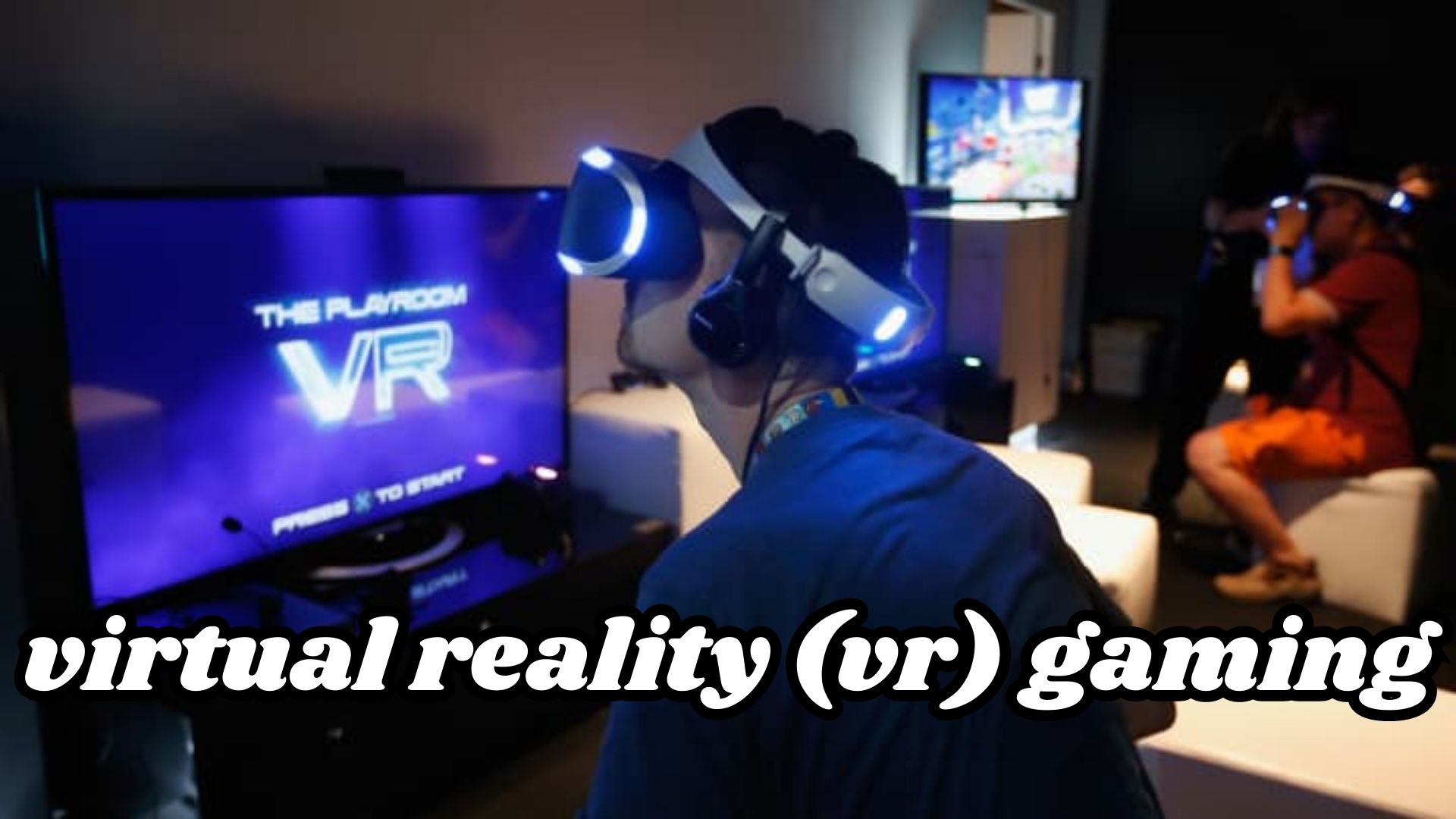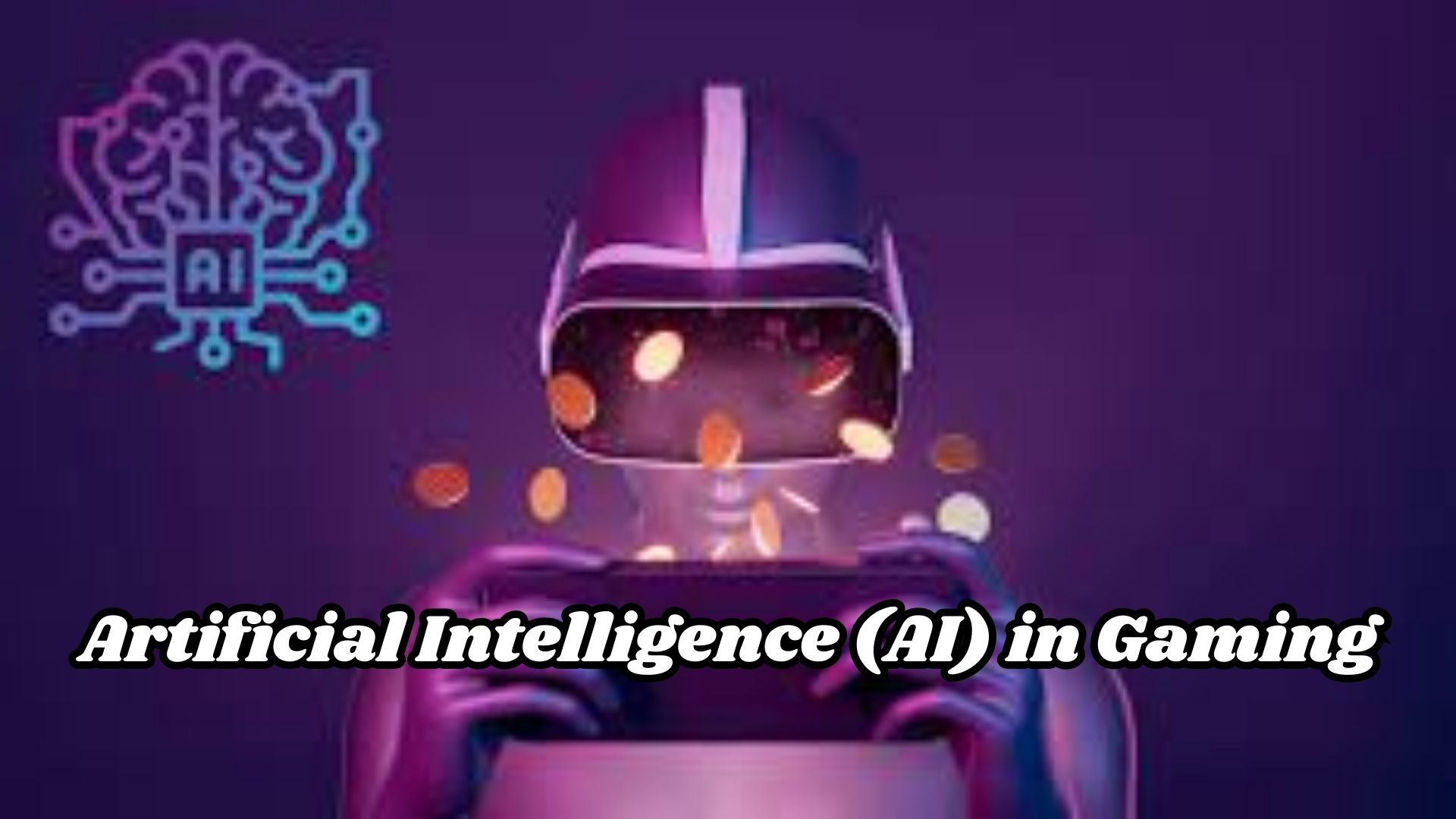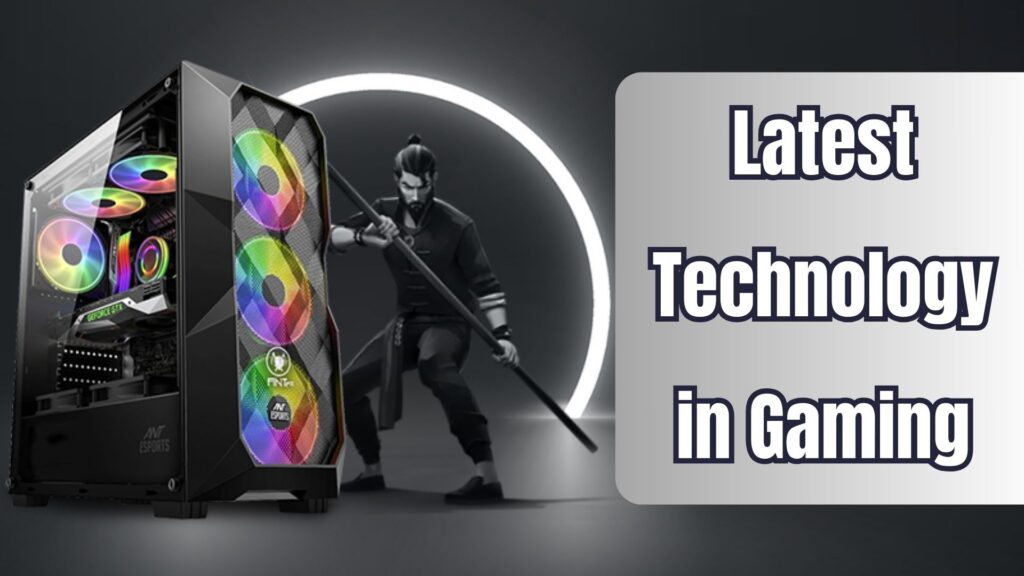Gaming has come a long way from its humble beginnings, where simple pixelated characters moved across screens. With advancements in technology, the gaming industry has undergone a revolution, embracing innovative technologies that have changed the way we play and interact with games. This article explores the Latest Technology in Gaming, shaping the future of this multi-billion-dollar industry.
Evolution of Gaming Technology (Latest Technology in Gaming)
Early Gaming Consoles
The journey of gaming technology dates back to the 1970s when the first gaming consoles like Atari and Magnavox Odyssey hit the market. These early gaming systems laid the foundation for the gaming industry and sparked a cultural phenomenon.
Advancements in PC Gaming
The advent of personal computers in the 1980s brought a new dimension to gaming. PCs offered more powerful hardware, leading to enhanced graphics and gameplay experiences. The rise of gaming giants like Doom and Quake solidified the PC’s position as a dominant gaming platform.
Emergence of Mobile Gaming
In the 21st century, mobile gaming witnessed a revolution with the introduction of smartphones. Games like “Angry Birds” and “Candy Crush” captivated audiences worldwide, making mobile gaming accessible to all age groups.
Virtual Reality (VR) Gaming
VR Headsets and Controllers
Virtual Reality (VR) has taken gaming to a whole new level. VR headsets like Oculus Rift and HTC Vive offer immersive experiences, making players feel like they are inside the game. The inclusion of motion controllers allows users to interact with virtual environments realistically.

Immersive Gaming Experience
VR gaming provides an unparalleled level of immersion. Players can explore virtual worlds, fight enemies, and solve puzzles with a sense of presence and realism never before experienced in traditional gaming.
Potential Applications in Other Industries
Beyond gaming, VR technology finds applications in various fields, such as education, training, and virtual tourism. Its potential extends far beyond the entertainment sector.
Augmented Reality (AR) Gaming
AR Devices and Applications
Augmented Reality (AR) merges virtual elements with the real world. Devices like smartphones and AR glasses enable players to interact with digital content in their surroundings.
Integration with Real-world Environment
AR gaming enhances the player’s surroundings, creating a more engaging and interactive experience. Games like “Pokemon GO” brought AR gaming into the mainstream, encouraging players to explore their neighborhoods to discover virtual creatures.
Gamifying Everyday Life
AR has the potential to gamify everyday tasks, such as fitness routines or learning experiences, making them more enjoyable and rewarding.
Cloud Gaming
On-Demand Gaming Services
Cloud gaming eliminates the need for powerful gaming hardware. Players can stream games from remote servers, reducing the barrier to entry for gaming enthusiasts.
Eliminating Hardware Constraints
With cloud gaming, players can access high-quality games on low-end devices, making gaming accessible to a broader audience.
Cross-platform Accessibility
Cloud gaming allows seamless gameplay across various devices, promoting a unified gaming experience.
Artificial Intelligence (AI) in Gaming
AI-powered NPCs and Enemies
AI technology enhances non-player characters (NPCs) and enemy behaviors, making them more realistic and challenging.
Procedural Content Generation
AI algorithms can generate game content dynamically, ensuring a fresh and unique experience with each playthrough.

Personalized Gaming Experiences
AI analyzes player behavior and preferences to offer personalized gaming recommendations and experiences.
Blockchain and Gaming
Ownership of Virtual Assets
Blockchain technology enables true ownership of in-game assets, empowering players to trade or sell them outside the game environment.
Secure In-game Transactions
Blockchain ensures secure and transparent in-game transactions, preventing fraud and unauthorized alterations.
Decentralized Gaming Platforms
Blockchain-based gaming platforms offer more autonomy to players, reducing the control of central authorities.
The Impact of 5G on Gaming
Reduced Latency and Lag
The high-speed and low-latency capabilities of 5G technology improve online gaming experiences.
Enhanced Multiplayer Experience
5G enables seamless multiplayer gaming, with more players participating in real-time without connectivity issues.
Expanding Mobile Gaming Capabilities
5G paves the way for graphically intensive games to be played on mobile devices without sacrificing performance.
Gaming on the Edge
Edge Computing and its Significance
Edge computing reduces latency by processing gaming data closer to the player’s device, enhancing response times.
Improved Game Performance and Speed
Edge computing optimizes game performance by offloading certain computations from centralized servers.
Lowering Server Dependency
Gaming on the edge reduces the impact of server downtime, providing a more stable gaming experience.
Futuristic Input Devices
Brain-computer Interfaces (BCIs)
BCIs allow players to control games using their brain signals, opening up new possibilities for immersive gaming experiences.
Gesture-based Controllers
Gesture-based controllers enable more natural and intuitive interactions with games, eliminating the need for traditional controllers.
Haptic Feedback Technology
Haptic feedback enhances player immersion by providing tactile sensations that correspond to in-game actions, such as vibrations or pressure.
Gaming in the Metaverse
Creating Virtual Worlds
The concept of the metaverse envisions interconnected virtual worlds where users can socialize, work, and play.
Social Interaction in Virtual Reality
Metaverse gaming platforms allow players to interact with each other as avatars, fostering a sense of community.
Blurring the Lines Between Real and Virtual
The metaverse blurs the boundaries between reality and virtual experiences, opening up a realm of possibilities.
Gaming for Health and Well-being
Gamification of Fitness
Fitness games encourage physical activity and make workouts enjoyable.
Mental Health Benefits of Gaming
Gaming can positively impact mental health by reducing stress and enhancing cognitive abilities.
Therapeutic Gaming Applications
Gaming is being explored as a tool for therapy and rehabilitation, aiding patients with various conditions.
Ethical Considerations in Gaming Technology
Addiction and Screen Time Concerns
Gaming addiction and excessive screen time have raised concerns about their impact on individuals’ well-being.
Virtual Reality and Disconnect from Reality
The immersive nature of VR gaming raises questions about potential dissociation from the real world.
Inclusivity and Representation in Games
The gaming industry is focusing on diversifying character representation to be more inclusive and representative.
Conclusion
The latest technologies in gaming have transformed the way we interact with virtual worlds. From Virtual Reality to Artificial Intelligence, gaming has evolved into a multi-dimensional and inclusive experience. As technology continues to advance, the gaming industry will undoubtedly witness even more revolutionary developments in the future. The latest technology in gaming is reshaping the gaming landscape like never before. With Virtual Reality, Augmented Reality, Cloud Gaming, AI integration, and other futuristic advancements, the gaming experience has become more immersive, inclusive, and interactive. As technology continues to evolve, gamers can look forward to an exciting future filled with endless possibilities in the world of gaming.
Frequently Asked Questions
Q. How can VR technology improve gaming experiences?
Virtual Reality offers immersive gameplay, allowing players to feel like they are part of the game world. This technology enhances realism and engagement.
Q. What are the benefits of cloud gaming?
Cloud gaming eliminates the need for expensive hardware and allows players to access games on various devices with ease.
Q. How does AI impact gaming?
AI-powered NPCs and procedural content generation offer dynamic and personalized gaming experiences for players.
Q. What is the metaverse in gaming?
The metaverse represents interconnected virtual worlds where users can socialize, play, and work in a shared virtual environment.
Q. Can gaming have positive effects on mental health?
Yes, gaming has been shown to reduce stress and enhance cognitive abilities, making it beneficial for mental well-being.

